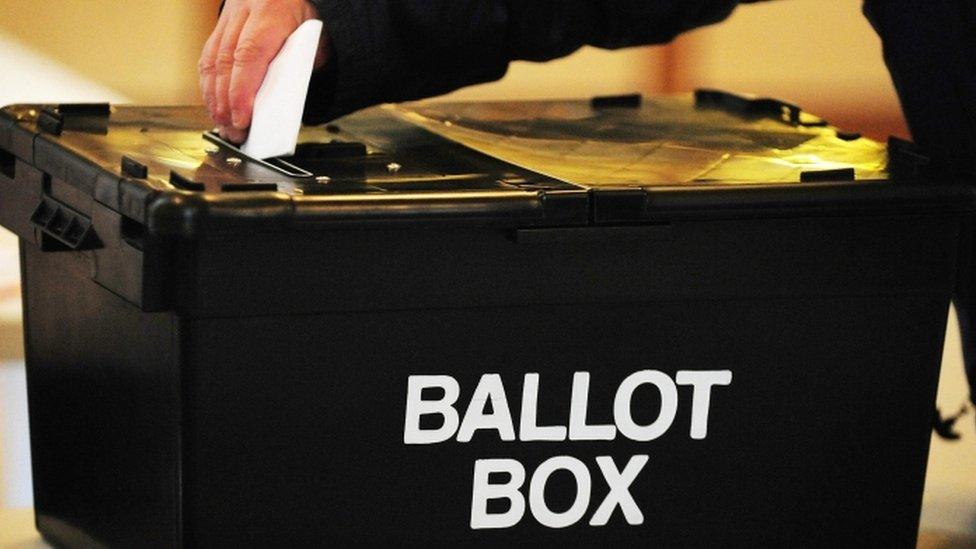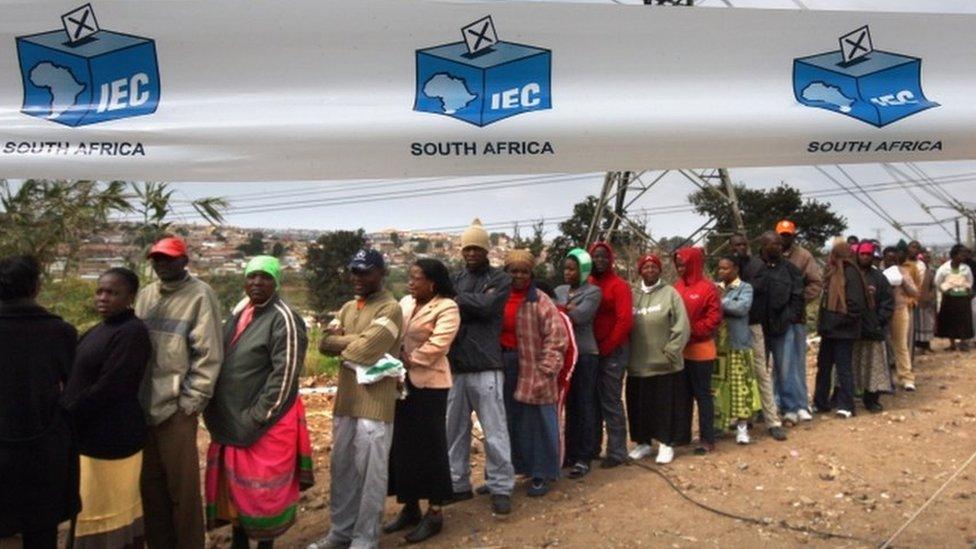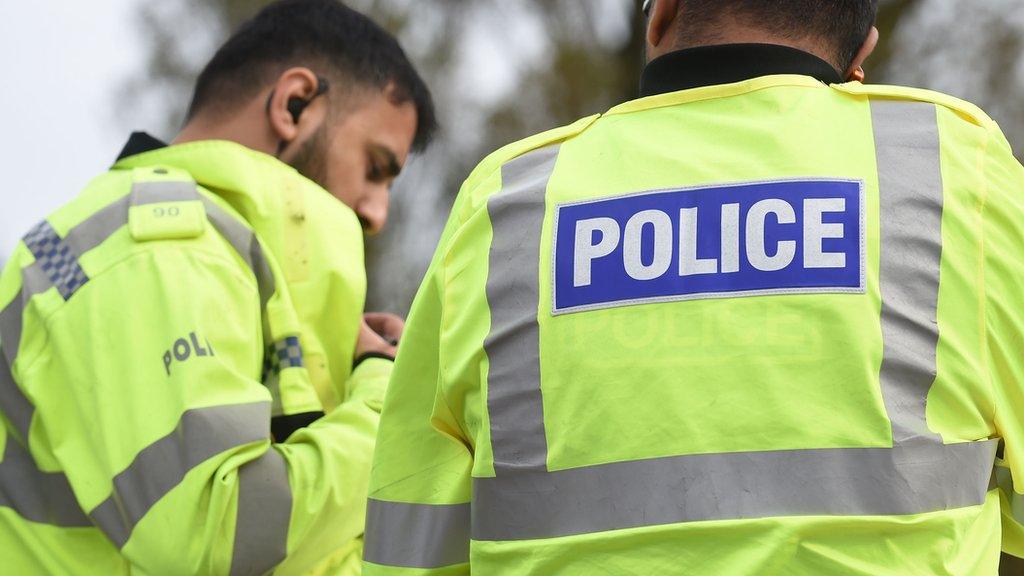Police and Crime Commissioners: Unloved but re-elected
- Published

We now have 40 newly-elected police and crime commissioners across England and Wales - but what does it mean and does anybody care?
Back in 2012, the former coalition government's controversial plan to put elected police and crime commissioners in charge of the nation's constabularies was sold with one simple idea: people power.
Chief constables were to come under the direct local control of powerful civilians elected by you and me.
But what a revolution it wasn't. The turnout in 2012 was so low that many of those elected to hire and fire chief constables hadn't even convinced 10% of the electorate to support them. The Essex PCC took office with the support of less than 5% of voters. Almost 200 miles away in the Bettws ward of Newport, nobody turned up at all to put their X on the ballot paper.
The elections had been scheduled for miserable grey November and didn't coincide with any local polls. With a lack of publicity through people's doors and few candidates on the stump, the public struggled to get it.
So what's changed four years on?
This time around the turnout vastly improved - but it has largely remained low, with some notable exceptions that I'll come to.
In 2012, the national turnout was 15%. It's now risen by more than 10 points and there is one really obvious reason why: the PCC vote was held on the same day as local elections to the Welsh Assembly and English councils.
Whether voters liked it or not, they were handed a ballot paper at the polling station and given a choice.
The turnout in 2012 in Essex was just over 12% - it's now more than doubled to 25%.


The elections for Merseyside and West Midland Police - predominantly covering Liverpool and Birmingham - saw big rises in turnout, almost certainly a knock-on effect from the well-oiled party machines in both cities cranking into gear.
But the biggest turnouts were in Wales.
Ddfyed Powys is now official the most pro-PCC place in Britain. Were the voters queuing out of the doors in scenes reminiscent of the first free elections in post-apartheid South Africa?

South African elections: No queues reported for PCCs vote in England and Wales
Were they hooked on the idea of who was going to run the force? Gripped by the strategic procurement delivery challenges of modernising crime fighting technology?
No, but a whopping 49% of people voted. Constituencies in the region had some of the largest turnouts for the Welsh Assembly - and that probably proves that people will vote for PCCs if they are already going to the ballot box for another reason.
The scheduling of the poll with other elections has, however, brought about the most important change since 2012.
Supporters of the PCC concept, including their Conservative architect Lord Wasserman, had argued they were a huge opportunity for local people to choose locally talented independents - people with the right mixture of expertise and profile to deliver crime-fighting results and boost public confidence.
A total of 12 independents took power in 2012. Today? There are three.
"The Conservatives have picked up what they would argue would be theirs in the first place," says Bernard Rix of Policing Insight,, external which monitors policing governance. "We've seen a lot of Conservative gains at the expense of the independents."
Labour have had three significant successes at the expense of the Conservatives, taking Humberside, Cheshire and Leicestershire. An important win for the party was South Yorkshire where the incumbent Alan Billings was returned amid the rolling scandals of Hillsborough and street sexual abuse in Rotherham.
The big winners in Wales were Plaid Cymru, who took control of both Dyfed Powys and North Wales police.
Both PC candidates were given permission to describe themselves on the ballot paper in a way that not only spelled out their party affiliation, but also their policing links - "former intelligence analyst" and "former policing inspector" respectively.
Was this a deciding factor for voters in the dark? The defeated Conservative candidate for Cheshire, John Dwyer, is a retired assistant chief constable - but the ballot paper didn't describe him as such.
In total, the Conservatives now hold 20 PCCs. Labour has 15 plus the London mayor, who has responsibility for policing, and the transitional similar position for Greater Manchester.
With Plaid Cymru on two and three independents, this is a delicate balance of power across England and Wales which could lead to some interesting policing politics when the commissioners have to work together to get what they want out of the Home Office.
So do the public now love their PCCs?
The turnout seems to suggest otherwise and many candidates will argue that the big issue remains the lack of national publicity from central government and proper funding for local awareness.
But Mr Rix argues there is a bigger failure that the candidates and elected PCCs need to address - with many of the 2012 crop having been largely invisible for the past four years.
"They may well complain that government has done nothing to support them [with publicity], but the PCCs individually and collectively, are also to blame," he says.
"It's wrong to blame others when you could do more to help yourself."
- Published21 April 2016
